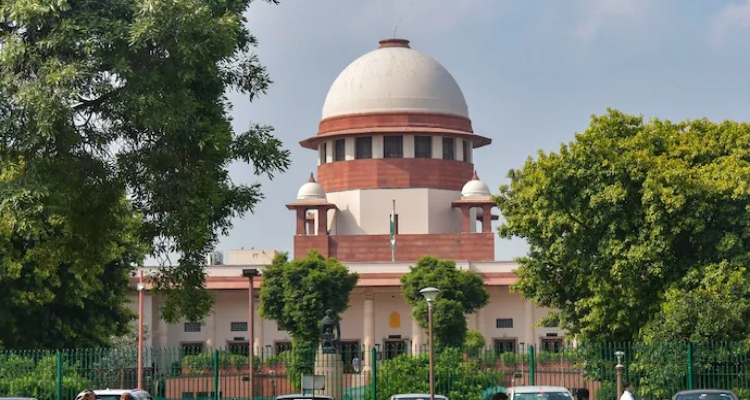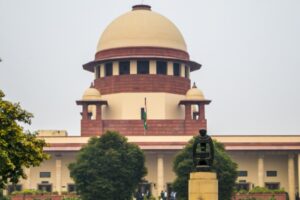
The Supreme Court on Tuesday directed the police in states and Union Territories to ensure that individuals from backward communities and innocents are not included in a history sheet.
Taking suo motu action, a bench comprising Justices Surya Kant and K V Viswanathan stated that certain studies available in the public domain indicate a pattern of “unfair, prejudicial, and atrocious” mindset.
Protection
The apex court emphasized that police authorities in states and Union Territories must ensure that innocent individuals from socially, economically, and educationally disadvantaged backgrounds, as well as backward communities, scheduled castes, or scheduled tribes, are not mechanically included in a history sheet.
The top court emphasized that a history sheet is an internal public document, not publicly accessible. It stressed the need for police officers to exercise extra care and precaution to ensure that the identity of minors is not disclosed as per legal provisions.
The court noted allegations of selective maintenance of police diaries for individuals belonging to Vimukta Jatis, based on caste bias, resembling colonial practices.
“All state governments are expected to take necessary preventive measures to protect such communities from unjust targeting or prejudicial treatment,” the bench remarked.
The apex court suggested implementing a periodical audit mechanism to review and scrutinize entries in a history sheet, aiming to eradicate such outdated practices and uphold the right to live with human dignity as guaranteed under Article 21.
While recognizing that states and Union Territories, except the NCT of Delhi, were not party to the case and haven’t been heard, the court refrained from issuing a positive mandamus to them. Instead, it directed all states/Union Territories to reconsider their policy regime and contemplate necessary amendments, akin to the ‘Delhi Model,’ to align with the court’s observations.
The apex court directed its registry to distribute a copy of the judgment to the chief secretary and director general of police of all states and Union Territories, urging them to consider and comply with the directives within six months.
Amanatullah Khan
These observations stemmed from a judgment on a plea by AAP MLA Amanatullah Khan challenging the Delhi Police’s decision to label him as a “bad character.”
The apex court affirmed that the decision by the Delhi Police to classify the History Sheet as an internal police document, not to be disclosed publicly, effectively addresses the concern at hand.
“Furthermore, the heightened care and caution to be exercised by police officers to ensure the non-disclosure of a minor’s identity as mandated by law is a crucial step towards addressing the appellant’s grievances. This measure will undoubtedly prevent the unwarranted exposure experienced by minors in this instance,” the Court stated.
“We also instruct the Commissioner of Delhi Police to appoint a senior police officer at the rank of Joint Commissioner to regularly audit and review the contents of history sheets, ensuring confidentiality and allowing for the removal of names of juvenile individuals found innocent during the course of investigation,” it added.
It is implicit that any Delhi Police officer found acting contrary to the amended standing order or the aforementioned directives will face swift disciplinary action, the Court emphasized.
The High Court dismissed Khan’s plea against the decision of the city police to designate him as a “bad character” on January 19 last year. However, it granted him the opportunity to present his case before the relevant authorities to challenge the “bad character” tag.
Last year, the Delhi Police designated Khan, the Aam Aadmi Party MLA from Okhla, as a “bad character.”
Khan’s legal representative argued before the High Court that the authorities had acted with malintent, alleging that a copy of the history sheet, a confidential document, was circulated on social media by a spokesperson for an opposing political party to tarnish his reputation.
According to the police, an individual involved in multiple criminal cases, including serious offenses like murder and attempt to murder, with the potential to disrupt peace in an area, can be designated as a “bad character.”





